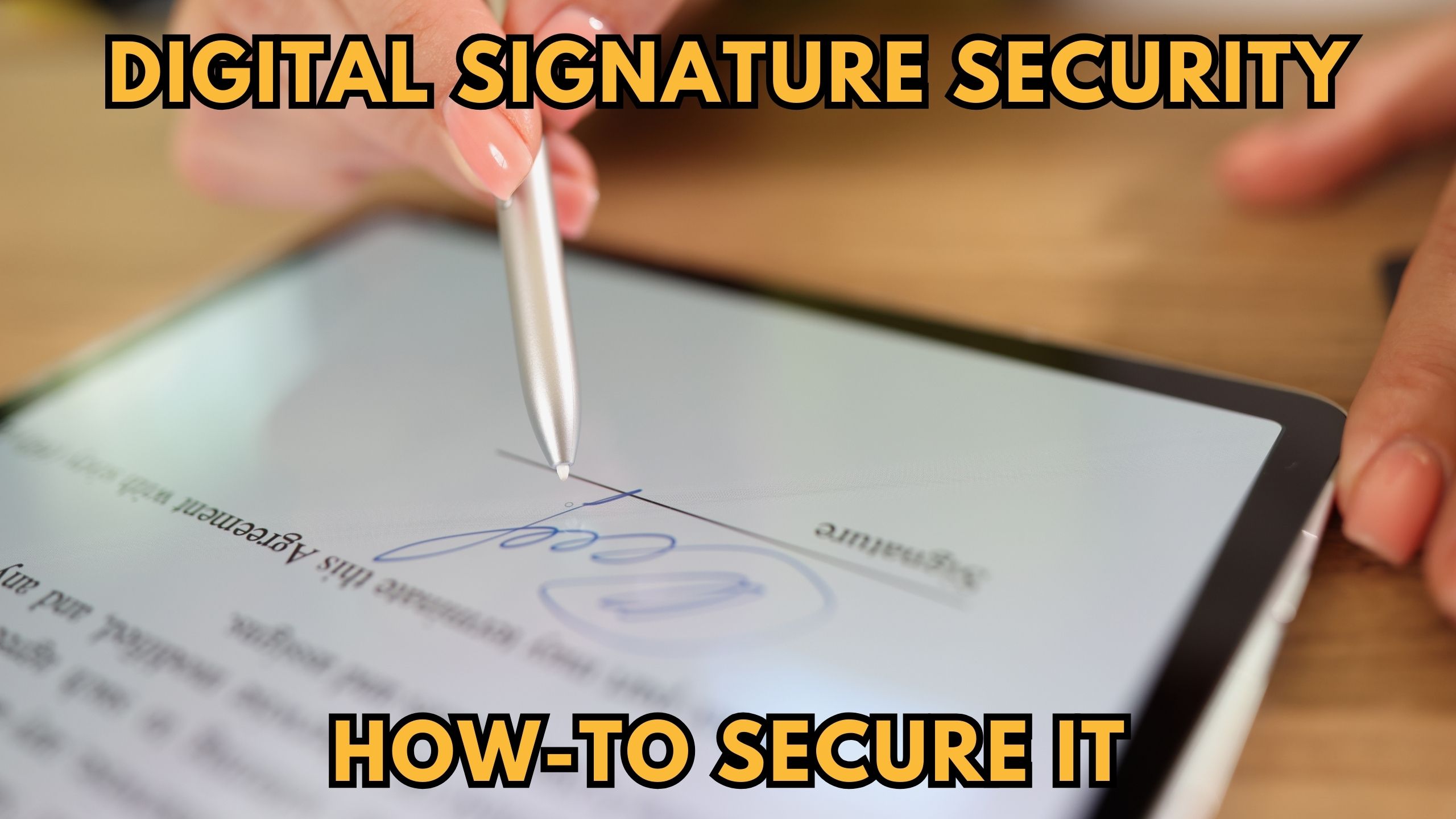Digital Signature Security: How-To Secure It
- Crypto


Digital Signature Security: How-To Secure It
In the digital age, where transactions and agreements occur online, digital signatures have become integral. However, with convenience comes the responsibility of ensuring the security of digital signatures. This blog is a comprehensive guide on understanding what a digital signature is and, more importantly, how to secure it effectively.
Understanding Digital Signatures
1. Decoding Digital Signatures
Digital signatures are cryptographic signatures that provide authenticity and integrity to digital messages or documents. They assure the recipient that the content has not been altered and comes from the purported sender.
In essence, a digital signature is the virtual counterpart of a handwritten signature, adding a layer of trust to electronic communication and transactions.
2. The Encryption Mechanism
Digital signatures operate through a pair of cryptographic keys – a private key known only to the signer and a public key available to the recipient. The private key generates the signature, and the public key verifies it.
The robustness of this encryption mechanism is crucial to maintaining the security of digital signatures.
Securing Digital Signatures: Best Practices
1. Key Management and Storage
The foundation of digital signature security lies in the secure management of private keys. Implementing robust key storage solutions, such as hardware security modules (HSMs), ensures that unauthorized access to private keys is nearly impossible.
Regularly update and rotate keys to mitigate the risk of compromise.
2. Blockchain Integration
Leveraging blockchain technology adds an additional layer of security to digital signatures. Blockchain provides an immutable and transparent ledger, making it exceptionally difficult for malicious actors to manipulate or forge digital signatures.
Explore SaaS solutions that integrate blockchain for enhanced security measures.
3. Multi-Factor Authentication (MFA)
Implementing MFA for digital signature processes enhances security by requiring multiple forms of verification. This could include a combination of passwords, biometrics, or one-time passcodes.
MFA significantly reduces the likelihood of unauthorized access and misuse.
4. Regular Security Audits
Conducting regular security audits is imperative to identify vulnerabilities and ensure compliance with industry standards. An audit provides insights into the effectiveness of security measures and highlights areas for improvement.
Choose SaaS products with built-in audit features for streamlined security assessments.
The Top 5 SaaS Products for Digital Signature Security
- DocuSign: Industry Leader in E-Signature Security DocuSign is renowned for its robust security features, including encryption and comprehensive audit trails. Trusted by businesses globally, DocuSign ensures the secure transmission of digitally signed documents.
- Adobe Sign: Seamless Integration with Adobe Tools Adobe Sign offers a seamless experience with other Adobe products. Its security features include advanced encryption and compliance with various global regulations, making it an ideal choice for businesses with diverse security needs.
- SignEasy: User-Friendly and Secure SignEasy prioritizes user experience without compromising on security. It incorporates bank-level encryption and compliance with major global e-signature laws, making it suitable for businesses of all sizes.
- HelloSign: Streamlined Security with API Integration HelloSign provides robust security measures while allowing for easy integration through APIs. It ensures the integrity of digitally signed documents and is suitable for businesses seeking a secure, customizable solution.
- OneSpan Sign: Strong Authentication for Digital Signatures OneSpan Sign is recognized for its strong authentication methods, including biometric verification. With an emphasis on user-friendly interfaces and stringent security, it’s a valuable addition to any organization prioritizing digital signature security.
Conclusion
In conclusion, securing digital signatures is paramount for maintaining trust and integrity in online transactions. By understanding the cryptographic principles behind digital signatures and implementing robust security measures, businesses can confidently navigate the digital landscape.
Ready to enhance your digital signature security? Explore exclusive deals on top SaaS products at Subscribed.fyi Deals. Sign up for free today and unlock savings on a wide range of tools to fortify your digital security.
Relevant Links:








